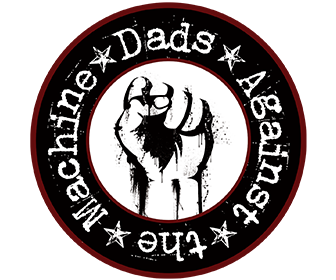In the dark corners of family courtrooms across the nation, fathers like Mark are being systematically stripped of their rights, battling a biased system that treats them as little more than visitors in their children’s lives. When Mark’s marriage began to crumble, he did what any devoted father would do: he fought for joint custody of his 3-year-old son. Mark, who worked from home and was actively involved in his child’s daily life, expected a fair hearing. What he got instead was a brutal reminder that in the eyes of the court, fathers are second-class parents.
From the outset, Mark’s ex-wife demanded full custody, throwing him a bone with visitation rights every other weekend. Despite his best efforts, Mark quickly realized that the court wasn’t interested in fairness. “The judge gave my ex everything she asked for, no questions asked,” Mark recalls with bitterness. “It was as if my role as a father didn’t matter.”
The System is Rigged Against Dads!
This isn’t just a sob story. It’s a widespread reality that fathers across the country are facing. The U.S. Census Bureau reports that as of 2018, only 20.1% of custodial parents are fathers. That’s right—nearly 80% of custodial parents are women, which begs the question: where is the gender neutrality that the courts are supposed to uphold?
Despite the well-documented disadvantages children face in single-mother households, the courts overwhelmingly side with mothers in custody battles. This bias persists even though data clearly shows that children often fare better in single-father households. For instance, studies have found that children from single-mother households are five times more likely to commit suicide, nine times more likely to drop out of high school, ten times more likely to abuse substances, and 20 times more likely to end up in prison compared to children from both intact families and single-father households. These alarming statistics suggest that, in many cases, the best interest of the child might be better served by granting custody to the father.
Yet, the reality is that fathers are often only granted custody when the mother is completely unfit, absent, or unwilling to participate in the legal process. Even in situations where the mother is clearly not the better option, courts frequently default to awarding her custody. The fact that nearly 70% of all teen pregnancies, 70% of all child murders, and a significant portion of filicide cases occur in single-mother households further underscores the potential risks involved when courts do not thoroughly assess each parent’s ability to provide a stable environment.
The unfortunate truth is that when a father does win custody, it’s often because the mother didn’t even show up to court, not because the system recognized that the father might be the better parent. This systemic bias against fathers overlooks the potential for better outcomes in single-father households and perpetuates the struggles many children face when placed in less favorable environments. Until the courts begin to genuinely assess the best interest of the child without gender bias, children will continue to suffer the consequences of this inequality.
The numbers don’t lie—fathers are fighting an uphill battle in a system that claims to be neutral but often falls far short of that promise.
Let’s cut through the nonsense. The so-called Best Interests of the Child standard is nothing more than a smokescreen for continuing the outdated Tender Years doctrine, which dictated that kids under 13 were better off with their mothers. Sure, that doctrine was officially dumped in the 1970s, but the mentality behind it is alive and well. Judges, steeped in outdated gender roles, still see mothers as the natural caregivers and fathers as nothing more than cash machines.
In a 2004 survey, 56% of Minnesota’s Supreme Court judges openly supported the idea that children belong with their mother. And it’s not just Minnesota. A 2013 study in Nebraska showed that mothers were awarded sole or primary custody a staggering 72% of the time. These numbers aren’t just statistics; they are the lives of fathers who are being systematically denied their rights.
Mark’s case is a textbook example of this bias. Despite being the primary caregiver, the judge dismissed his role with a wave of the hand. And it’s not just Mark. Fathers across the nation report being treated as if their involvement in their children’s lives is somehow less important. Judges, many of whom are still stuck in the 1950s, can’t seem to grasp the idea of a father being the primary caregiver. They ask questions that show their ignorance, like when Mark’s judge asked if working from home meant he was unemployed.
This isn’t just about custody battles. The bias against fathers permeates every aspect of family law. Take alimony, for example. Men are routinely forced to pay “manimony,” even when they are the ones who were financially supporting the family. And don’t get me started on domestic abuse cases. A man trying to get a restraining order is more likely to be laughed out of court than taken seriously.
But it doesn’t stop there. When fathers like Mark try to fight back, they’re met with resistance from every corner. Lawyers tell them to settle for the bare minimum because they know the courts are stacked against them. And when fathers do push for more, they’re often seen as troublemakers, not as parents fighting for their children. The court’s message is clear: shut up, pay up, and be grateful for whatever scraps you’re thrown.
This systematic bias has sparked a movement among men who are fed up with being treated like second-class citizens in the family courts. These men are banding together, sharing strategies, and supporting each other through the hell that is the family court system. And while feminists might howl about equality, the truth is that when it comes to family law, men are still getting the short end of the stick.
Mark’s story is one of many, but it should serve as a wake-up call. The family court system is broken, and it’s men who are paying the price. Until judges stop seeing fathers as walking wallets and start recognizing them as equally important parents, fathers like Mark will continue to be treated as nothing more than visitors in their own children’s lives.
The time for change is now. It’s time to rip up the outdated playbook and start treating fathers with the respect and fairness they deserve. Until then, fathers like Mark will continue to fight a losing battle in a system that’s rigged against them. And that’s not just unfair—it’s a disgrace.



























